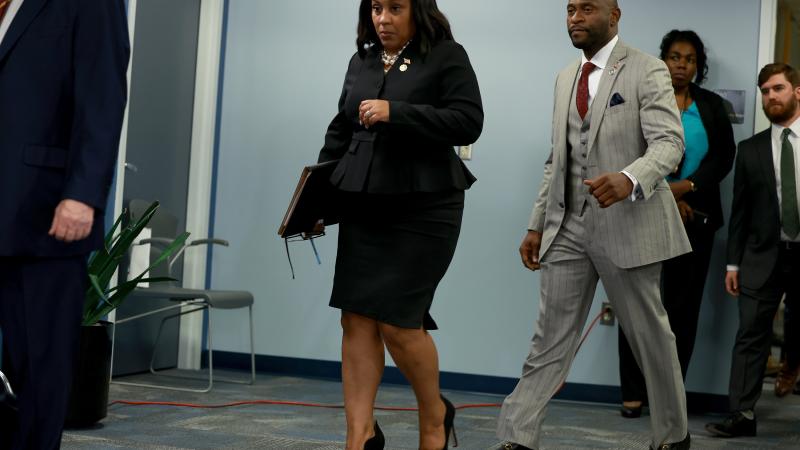DOJ must do more to avoid appearance of political bias, enforce accountability, probe finds
Department letting some escape accountability for wrongdoing by retiring before probes are complete, Inspector General Michael Horowitz warns
The Department of Justice has squandered public trust by straying from its own policies designed to avoid the appearance of political bias and meddling and by permitting some employees to escape accountability for misconduct by leaving the department before investigations were complete, the agency's chief watchdog is warning.
Justice Department Inspector General Michael Horowitz's pointed rebuke this week comes as the department is still enduring public scorn for its failures in the discredited Russia collusion probe, revelations that Attorney General Merrick Garland directed the FBI to investigate school parents protesting classroom policies, and an FBI raid on provocative conservative journalist James O'Keefe's home that alarmed civil liberties advocates.
"The Department faces a challenge in addressing public perception about its objectivity and insulation from political influence," Horowitz wrote in a report that cited recent polling showing greater public concern and division over the perception of bias inside federal law enforcement.
"The Department's efficacy as the guardian of the rule of law depends on maintaining the public trust in its integrity, impartiality, and ability to effectively administer justice," he added.
The watchdog cited several recent IG investigations that found the James Comey-era FBI misled the FISA court in the Russia case and wrongly usurped prosecutors' powers by declining prosecution in the Hillary Clinton email probe. He also noted more recent failures, including continuing FISA warrant problems, a bungled sex abuse case involving female Olympians, and reports the department faced pressure to investigate allegations of fraud and misconduct in the 2020 election.
In many instances, rules and policies in those cases weren't followed, to the detriment of the department's reputation and public trust, he noted.
"One important strategy that can build public trust in the Department is to ensure adherence to policies and procedures designed to protect DOJ from accusations of political influence or partial application of the law," he urged.
You can read the full report here:
Likewise, Horowitz said public trust has been harmed by decisions to allow department employees facing misconduct investigations to retire before determinations were made. Cases were then closed without discipline.
"Accountability is particularly challenging in instances where the Department employee retires or resigns before allegations of misconduct can be fully adjudicated," Horowitz wrote, noting that 10% of misconduct cases pending before the FBI's Office of Professional Responsibility in 2017 and 2018 were closed when the employee retired or resigned prior to the disciplinary process being completed.
"We concluded that this FBI practice adversely impacted the FBI's ability to hold employees accountable for their misconduct, was unfair to employees wrongly accused, and wasted OIG and FBI resources," he said. "Adjudicating all cases to conclusion, as recommended by the OIG, will ensure that employees who choose to leave the FBI while under investigation cannot escape a finding of misconduct that could affect potential future employment and other benefits."
Horowitz also raised concerns that prosecutor misconduct cases have been outside the independent jurisdiction of the IG and left to the department's office of professional responsibility to resolve.
"Another means of strengthening confidence in the Department is ensuring that attorney professional misconduct matters are handled no differently than misconduct allegations made against law enforcement agents or other DOJ employees," he wrote.
"Currently the Department's Office of Professional Responsibility, a DOJ component that lacks the same statutory independence and protections as the OIG, has exclusive jurisdiction over allegations of misconduct by Department lawyers that relate to an attorney's responsibility to investigate, litigate, or provide legal advice," he said. "Independent oversight of Department lawyers is a step towards broader accountability and improved public trust in the Department."
















